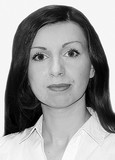Optimization of physical education classes using artificial intelligence for students of SMG
Keywords:
students, special medical group, physical education, artificial intelligence.Abstract
Objective of the study was to exploration of the potential for employing artificial intelligence to tailor physical education lessons for students in a specialized medical group, and the evaluation of the impact of this approach on the educational experience within the university.
Methods and structure of the study. The research work was conducted in two distinct phases. In the initial phase, which commenced in early 2023, an AI-based model was created. This model was employed to evaluate physical abilities and create personalized physical education plans for students in a special medical group at the Tomsk State University. The model is based on a multimodal neural network, specifically Generative Pretrained Transformer 4o.
Results and conclusions. The potential of AI in tailoring physical education lessons for students with specific medical conditions has been explored, and the success of its implementation in the university's curriculum has been evaluated. The use of AI has been shown to be highly effective in personalizing lessons for students with special medical needs. By considering the unique characteristics of each student's illness and physical abilities, AI has helped to enhance physical performance, reduce the frequency of disease flare-ups, and increase student satisfaction with their lessons.
References
Begidova T. P. Adaptivnaya fizicheskaya kultura v kompleksnoy reabilitatsii lits s otkloneniyami v sostoyanii zdorovya. Study guide for universities. Moscow: Yurayt publ., 2024. 210 p.
Vlasova V.P. Fizicheskaya reabilitatsiya studentov s ogranichennymi vozmozhnostyami zdorovya i invalidov v usloviyakh pedagogicheskogo vuza. Sovremennyye problemy nauki i obrazovaniya. 2018. No. 4. 207 p.
Gorelov A.A., Noskov M.S., Tretyakov A.A. et al. Individualizatsiya kak osnova povysheniya effektivnosti sportivnoy deyatelnosti. Sovremennyye problemy nauki i obrazovaniya. 2015. No. 1-2. 137 p.
Grigorenko D.V., Bakeshin K.P. Primeneniye iskusstvennogo intellekta v protsesse fizicheskoy podgotovki. Molodoy uchenyy. 2024. No. 15 (514). pp. 446-448.
Korovnikova N.A. Iskusstvennyy intellekt v sovremennom obrazovatelnom prostranstve: problemy i perspektivy. Sotsialnyye novatsii i sotsialnyye nauki. 2021. No. 2 (4). pp. 98-113.
Proshlyakov V.D., Nikitin A.S. Metody i sredstva diagnostiki v fizicheskom vospitanii i sporte studentov s otkloneniyami v sostoyanii zdorovya. Moscow: Eko-Vektor publ., 2015. 160 p.

Additional Files
Published
How to Cite
Issue
Section
License
Copyright (c) 2024 Theory and Practice of Physical Culture

This work is licensed under a Creative Commons Attribution 4.0 International License.
